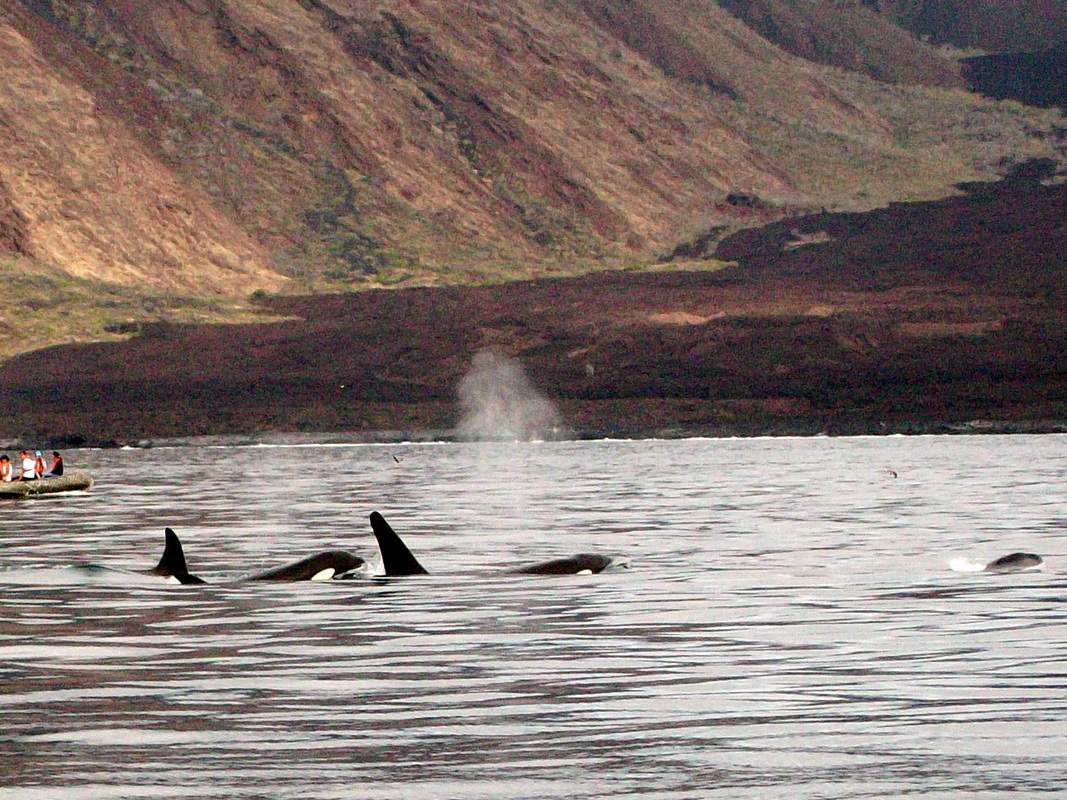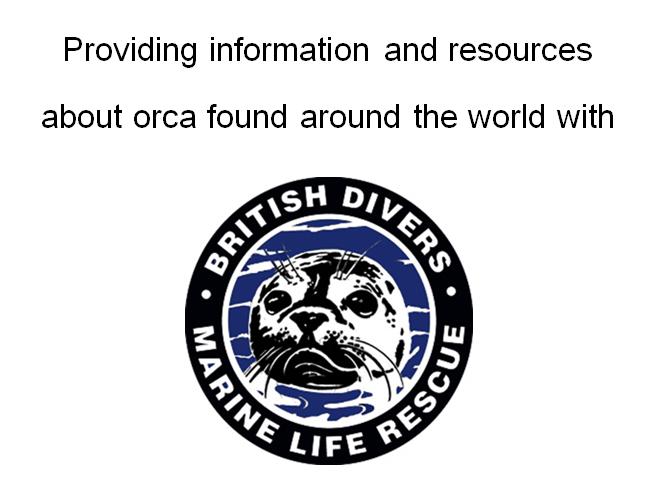|
"The U.S. government said it submitted a proposal to regulators to establish a protected area for an Antarctica region of the Ross Sea........ The State department said the area is a sensitive habitat for penguin, seal and killer whale species."
To find out more about the proposal read: http://www.upi.com/Business_News/Energy-Resources/2012/09/18/US-backs-reserve-area-in-NZ-fishing-zone/UPI-72621347968954/
0 Comments
There have been two sightings this month of orca off the Scottish coast: 4 individuals south-east of the Loch Shell entrance (4/09) and 5 individuals from Arisaig to Eigg Ferry.
To keep up-to-date with orca sightings in UK waters, visit the Hebridean Whale & Dolphin Trust (HWDT) public sightings records: http://www.whaledolphintrust.co.uk/sightings-recent-sightings.asp Orca sighted at the Galapagos Islands off the coast of Ecuador, eastern South America:
http://thirdeyemom.com/2012/09/14/the-friday-feature-orca-whales-in-the-galapagos-islands/#comment-8329 British Divers Marine Life Rescue (BDMLR) have now officially released news of the Orca Aware campaign.
http://www.bdmlr.org.uk/index.php?mact=News,cntnt01,detail,0&cntnt01articleid=910&cntnt01origid=15&cntnt01returnid=54 The Port Townsend Marine Science Center have published an orca bone atlas created from the skeleton of transient orca Hope who stranded and died in 2002 (http://www.ptmsc.org/boneatlas/).
The orca bone scans that form the atlas were produced by the Idaho Virtualization Laboratory at the Idaho Museum of Natural History, as part of the Virtual Zooarchaeology of the Arctic Project, funded by the National Science Foundationhttp://bones.iri.isu.edu/. They are also producing bone scans for the Sitka Sound Science Center in Alaska. A young male orca named Kruzof was found washed up on Kruzof Island 18 months ago. If you follow this link, you can follow his journey from beach to lab over the past year and a half: http://www.kcaw.org/2012/03/23/orca-skeleton-scanned-reassembled-in-sitka/ Kruzof's bones will soon be on display at the Sitka Sound Science Center. The Maldives Whale Shark Research Programme (MWSRP) encountered orca earlier this year in the Maldives just outside Conrad Maldives Rangali Island: http://www.youtube.com/watch?v=dn50giUjVZo&feature=share We are excited to announce that Ingrid's BBC documentary "The Woman who Swims with Killer Whales" is a finalist in the 'issues' category of this year's BLUE Ocean Film Festival (24-30 September, California).
If you haven't seen the documentary already, we recommend that you find out when it is next being aired in your country - it really is a phenomenal watch! Follow the link to find out more information about this film and conservation event, as well as to watch the documentary tailer: http://www.blueoceanfilmfestival.org/videos-The_Woman_who_Swims_with_Killer_Whales_70.htm Orca Delphine learns how to intentionally strand herself, a hunting technique used by Crozet killer whales: http://www.youtube.com/watch?v=jxN5pXmbsdg A great paper on the development of the intentional stranding hunting technique in Crozet orca calves (Guinet & Bouvier 1995): http://people.trentu.ca/sarahdungan/Trent_marine_mammals/Lectures_files/Guinet%20%26%20Bouvier%201995.pdf Exciting news: names have been given to the three calves born into the Southern resident orca community in 2010 and 2011 by The Whale Museum!
The newly named babies are: Ripple (K-44), Keta (L-117), and Jade (L-118). Check out this article to find out more about the young orca, the names they have been given and the Southern resident adoption programme. http://pugetsoundblogs.com/waterways/2012/09/13/orca-calves-are-given-names-for-the-first-time/ A while ago we posted about one theory for the evolution of the menopause in humans: competition with the in-laws. Now we may know why orca also experience an extended menopause (with pilot whales being the only other mammal to go through it).
Darren Croft from the University of Exeter here in the UK, along with colleagues, has found evidence to suggest that the menopause may have evolved in female orca so that they can continue to care for their adult sons! It may be a way of allowing a mother to invest her energies into the survival of her adult (male) offspring. "There's some suggestion from whale watchers that they may guide their sons' foraging for food such as salmon, or provide support for their sons in aggressive encounters with other orcas," says Croft, theorising how menopausal orca may help their sons. The researchers suggest the menopause may have evolved because protecting sons instead of having further offspring may give orcas the best chance of ensuring they pass on their genes. Check out this New Scientist article for further information: http://www.newscientist.com/article/dn22270-dead-sons-may-explain-killer-whale-menopause.html http://www.reuters.com/article/2012/09/13/us-whales-menopause-idUSBRE88C16120120913 Here is the link to the Center for Whale Research Foster et al. (2012) paper just published in Science entitled: Adaptive Prolonged Postreproductive Life Span in Killer Whales. Listen to the free Science podcast which talks about this research into orca menopause, with an interview from Exeter University's Emma Foster who led the project (http://www.sciencemag.org/content/337/6100/1365.2.full). |
Archives
January 2017
|



 RSS Feed
RSS Feed
